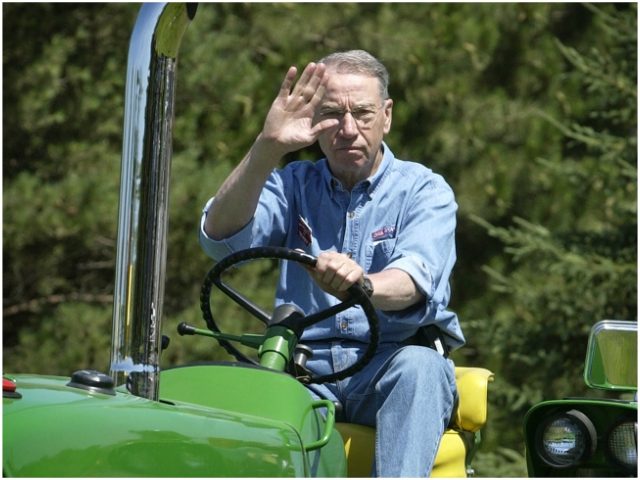During his speech to the American Farm Bureau at its annual convention, President Trump said that “farmers deserve a government that serves their interest and empowers them to do the hard work that they love to do so much.” As a family farmer, I couldn’t agree more.
Agriculture is a vitally important economic driver that stimulates jobs on and off the farm throughout rural America, which was among the hardest hit by and slowest to recover from the recession. Exporting commodities and value-added agricultural products is key to the quality of life rural America. In fact, the United States is the world’s top exporter of food and agricultural products.
In my home state of Iowa, one out of five jobs is trade-dependent. Every third row of soybeans is planted for export, 60 percent of Iowa corn exports and 77 percent of poultry product exports are exported to countries in the North American Free Trade Agreement, or NAFTA, and, as the number one hog producer in the United States, Iowa exports more than 25 percent of its pork to foreign markets, valued at $1 billion in 2016. Needless to say, smart trade policies have a major and direct impact on the health of the economy in Iowa.
In particular, NAFTA is a pivotal component to successful comprehensive U.S. trade policy. From 2010 to 2012, 27.5 percent of all U.S. agriculture exports were to Canada and Mexico, a number that has grown over the last two decades. This growth has resulted in tens of billions of dollars being pumped into local economies and is made possible through strong, cooperative trade policies that benefit America’s farmers while increasing jobs and strengthening the rural economy.
Revenue generated through NAFTA has boosted the financial health of Americans who grow, process, market, transport and sell food, renewable fuels and fibers. This contributes to the success of the national economy. Considering NAFTA’s significant and overall positive economic impact, I caution any serious changes to the agreement without a clear understanding of the short and long-term repercussions.
Recent discussions on NAFTA and America’s participation in it have ranged from renegotiating terms to exiting the agreement entirely. In an “America First” agenda, withdrawing from NAFTA would be a mistake and cause serious, negative consequences.
President Trump has regularly expressed and demonstrated his support for rural America and agriculture. Over the past year, the Trump administration has taken tremendous steps forward in making life better for the farming communities that have been largely overlooked for too long. One step was the establishment of the Rural Prosperity Task Force, which helped identify legislative, regulatory and policy changes necessary to secure prosperity for rural America. In fact, it’s already working.
The passage of the Tax Cuts and Jobs Act is another victory for American agriculture. Since most farms are organized as pass-through businesses, they will benefit from both lower across-the-board tax rates and a 20 percent deduction in their taxable income. The doubling of the estate tax exemption will allow family farms to be passed from one generation to the next with less hassle, and farmers will now be able to expense 100 percent of their capital investments, such as equipment, over the next four years.
These are only some of the examples of the progress made under President Trump on behalf of the agriculture community in America. A smart renegotiation of NAFTA would continue building on these early successes. Improvements to the agreement would unlock additional potential for productivity and prosperity in America’s heartland.
Efforts to secure a better, fairer deal that increases U.S exports will help create better-paying jobs for American workers, unleash investment and ramp up innovation in America. U.S. agriculture depends on access to international markets in which to sell their products. Lowering trade barriers and expanding access to more markets can serve as a game changer to revitalize American agriculture for generations to come.
As talks about the future of NAFTA move forward, I will continue to voice the importance of the agreement to the country’s agriculture communities and overall economic success. I’ll also continue to encourage the president and his administration to remain committed to an “America First” agenda that includes strong support for agriculture and trade.
American agriculture not only anchors U.S. food and national security, it also boosts our balance of trade, broadens the tax base and reaches deeply into the nation’s economy. The country needs strong agriculture and trade policies. President Trump was right when he said that “farmers deserve a government that serves their interest and empowers them” to do the work they take so much pride in doing. I’m confident that we can negotiate a fair deal that will put farmers first and encourage continued economic growth and prosperity in rural America.
Senator Chuck Grassley is a Republican U.S. senator from Iowa and chairman of the Senate Judiciary Committee.

COMMENTS
Please let us know if you're having issues with commenting.